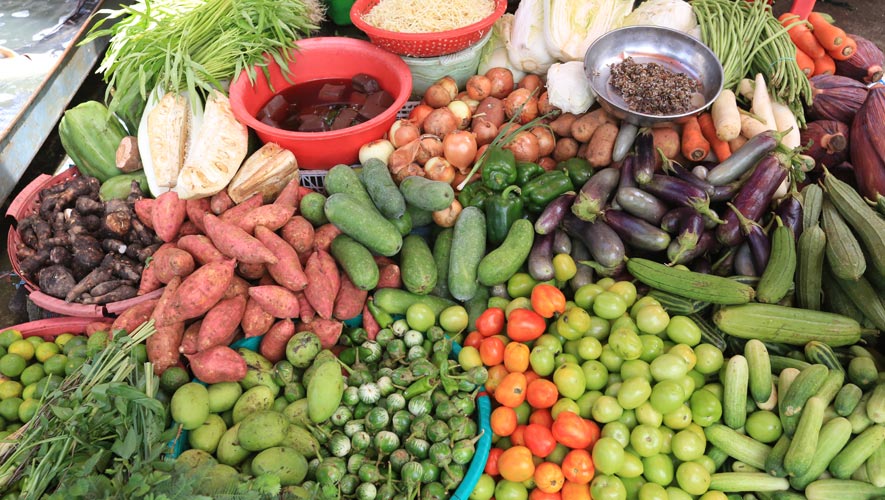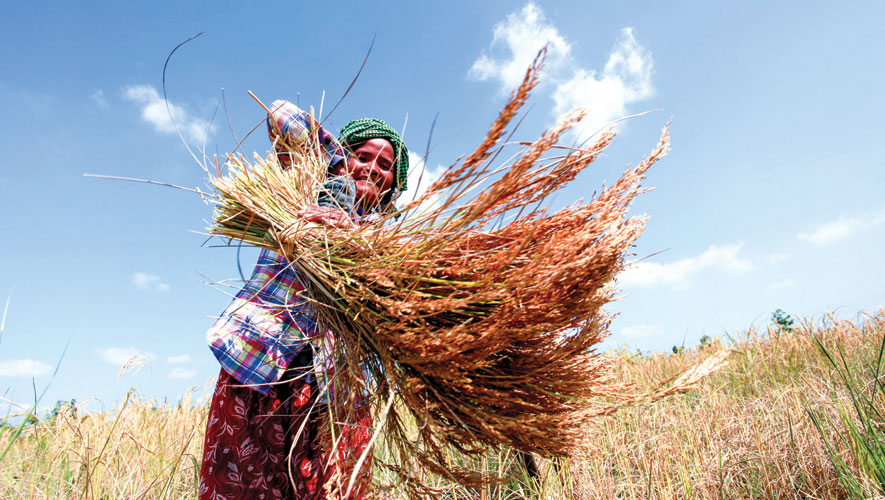Cambodia is keen to move up the value chain for agricultural exports but challenges stymy efforts, slowing down investments and interests
For the latest Cambodian Business news, visit Khmer Times Business
To climb the regional value chain and reduce the proportion of raw products that are exported, investments on processing, packaging, warehousing and cooling facilities are crucial.
In 2017, exports of agriculture commodities reached 5.13 million tonnes. Of that figure, cassava, rice, mango, cashew, and rubber were raw produce, prove that processing and other activities that add value take place in other countries.
The Cambodian government aims to achieve 12 percent export of finished agricultural produce by 2025.
But to do that, it has to first strengthen the value chain of agricultural products. At present, unverified estimates show that the government is unable to capture the so-called lost economic opportunity from diversifying this segment.
Observers say the government has to provide or upgrade warehouses, silos, railways, roads, waterways, and ports to connect farmers to processing factories. It needs to also lower electricity tariffs while stabilising supply, and help with access to low interest loans.
“Only if these issues are tackled, the agro-processing sector can see vast improvements, and investors would set up agro-processing factories in the Kingdom,” says Amru Rice (Cambodia) Co Ltd managing director Kunthy Kann.
He tells Capital Cambodia that the production cost in the agro-processing sector is high and not competitive compared to Vietnam and Thailand.
Labour cost is comparable with Vietnam and that is not a good thing. Coupled with low productivity and lack of experience in the processing segment, Cambodia simply lags behind neighbouring countries.
“Challenges must be addressed expediently. In Cambodia, you will see electricity shortages between 60 days and 72 days but Thailand and Vietnam do not have such issues,” he says.
As it is, the agriculture sector does not earn a sustainable profit because of various factors including climate, lack of technology know-how and shortage of workers.
“Based on this, some local investors are even considering investing in other sectors like real estate as they can generate profit immediately,” Kunthy says.
World Bank says that Cambodian small and medium enterprises including those involved in agro-processing have limited knowledge, access to modern equipment, and capacity to implement modern processing techniques to cater to the market and quality.
“SMEs and agro-processing firms face high costs of firm formalisation, operation, and financing,” it states, adding that agriculture-based loans by commercial banks accounted for only 11 percent or $1.7 billion of the total loan portfolio in 2017.
Local think tank Centre for Policy Studies director Chan Sophal says it is difficult to attract investors when the Kingdom’s electricity tariff is expensive yet unreliable.
This does not include the difficulty in supplying processing factories with produce from seasonal crops the whole year.
He suggests that electricity tariffs should be between five cents and seven cents per kilowatt per hour, and loan interest rates ought to be about four cents to make the private sector competitive.
In 2017, agricultural produce represented Cambodia’s second largest export where rice (635,679 tonnes), slice cassava (2.83 million tonnes), fresh cassava (936,984 tonnes), maize (168,685 tonnes), pepper (2,699 tonnes), fresh mango (77,422 tonnes), rubber (188,832 tonnes), and cashew (73,179 tonnes) made it out of the country.
A year later, the sector grew 1.78 percent, accounting for more than 30 percent of Cambodia’s gross domestic product (GDP) compared to some 25 percent in 2017. Growth was largely contributed by increased production and markets for products like rice, rubber, cashew, and fruits.
“The government envisions a plan to reduce raw material export with the help of local and foreign investors for processing facilities,” says Tek Reth Kamrang, Secretary of State for the Ministry of Commerce.
He notes that there are incentives for the private agro-processing sector such as five-year profit tax prepayments and tax exemptions for units involved in producing, supplying or exporting agriculture products.
Exporters are also no longer required to produce certificates of origin at local customs if the document is not required by authorities at the destination.
The new investment law, which is still being discussed, includes other incentives to the private sector.
“We want to push for more export of finished products with added value. We hope to see this happen in the coming years,” Kamrang says.
The government is working with the Asian Development Bank to develop an “agricultural value chain infrastructure improvement” project at a cost of $70 million to tackle the problem areas in the sector. The project will take place between 2021 and 2027.
In the meantime, an unperturbed South Korean Hyundai Agro (Cambodia) has invested $6 million on vapour heat and hot water treatment facilities in Kampong Speu which would see the first export of Cambodian mangoes to South Korea this October.
Acknowledging the shortcomings in Cambodia, its chief executive officer Lee Chang Hoon feels that there is ample potential to expand.
He says the company has reserved $4 million to increase its mango farms and set up a fresh fruit processing plant by 2021.
“There are many challenges starting a processing plant like unreliable electricity supply, farmers’ lack of awareness on contract farming, and poor international market recognition but we are willing to plough through this,” he adds.




